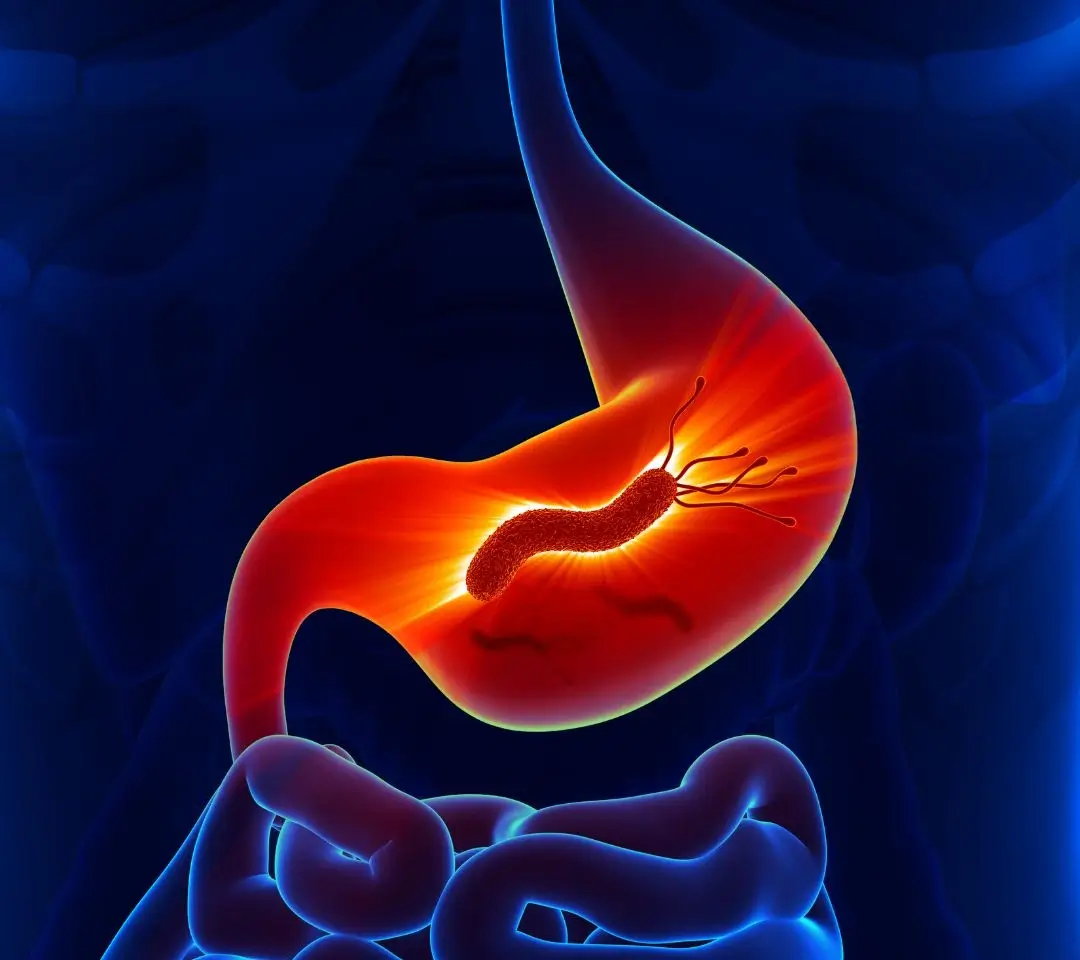Frequently Asked Questions
Helicobacter pylori (H. pylori) is a type of bacteria that infects the stomach lining and can cause ulcers and gastritis.
Diagnosis can be made using breath tests, stool antigen tests, blood antibody tests, or endoscopic biopsy.
Symptoms include stomach pain, nausea, bloating, loss of appetite, and sometimes ulcers or bleeding.
Treatment involves a combination of antibiotics and acid-suppressing medications for 10 to 14 days.
Long-term infection may increase the risk of stomach cancer if left untreated.
Yes, it can spread through contaminated food, water, or close contact with infected individuals.
Certain medications like antibiotics or proton pump inhibitors may need to be stopped before testing for accurate results.
It's a non-invasive test that detects active H. pylori infection by measuring carbon dioxide in your breath after ingesting a special substance.
It's uncommon for the infection to resolve without treatment, so medical therapy is usually needed.
Untreated infection can cause ulcers, chronic gastritis, and increase cancer risk.
Possible side effects include diarrhea, nausea, and allergic reactions to antibiotics.
Yes, reinfection is possible but uncommon with good hygiene.
Practice good hand hygiene, drink clean water, and eat properly cooked food.
Currently, there is no approved vaccine against H. pylori.
Retesting is usually done at least 4 weeks after completing therapy to confirm eradication.

